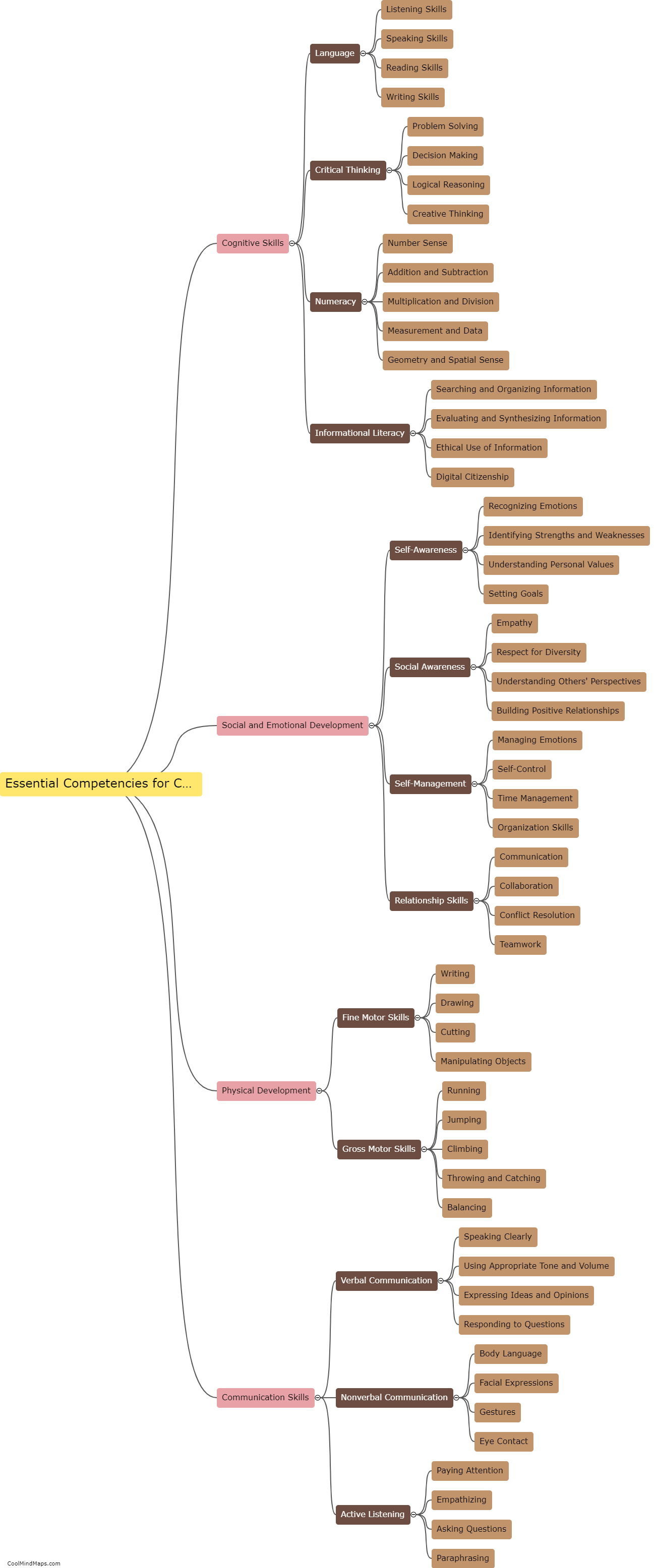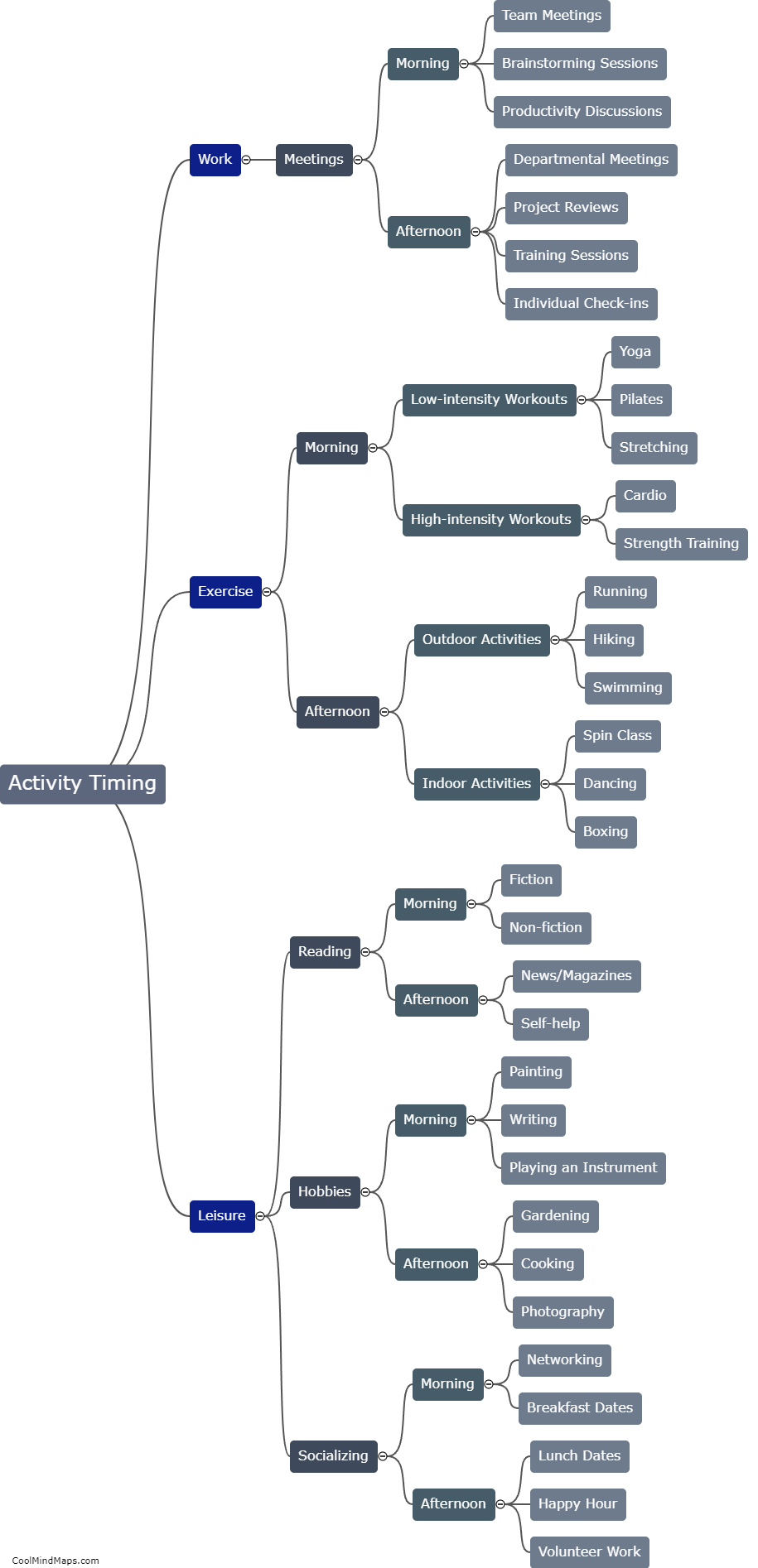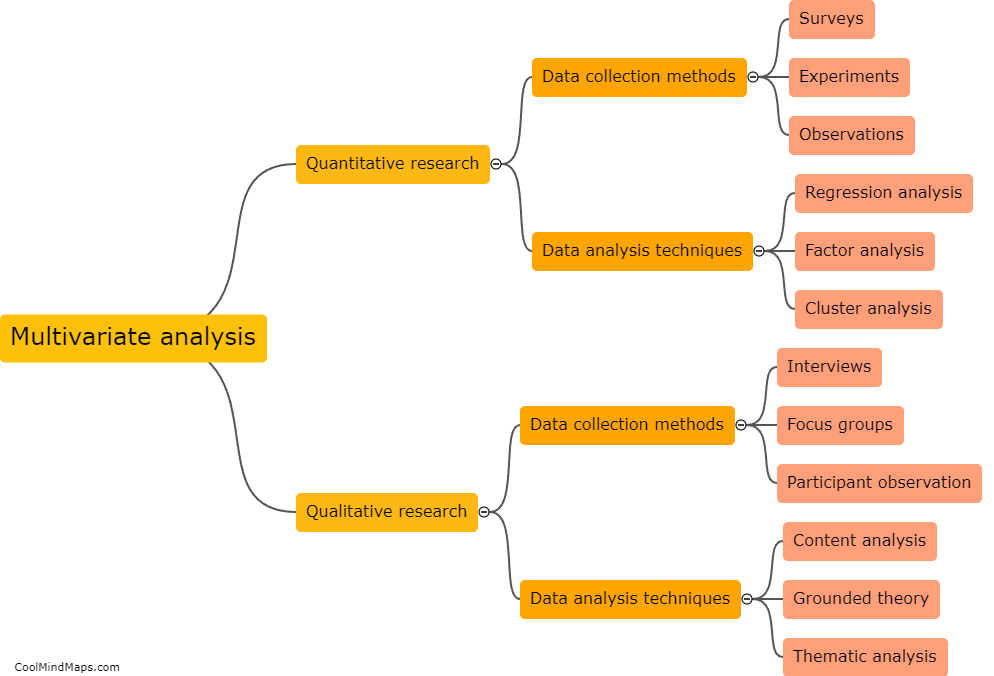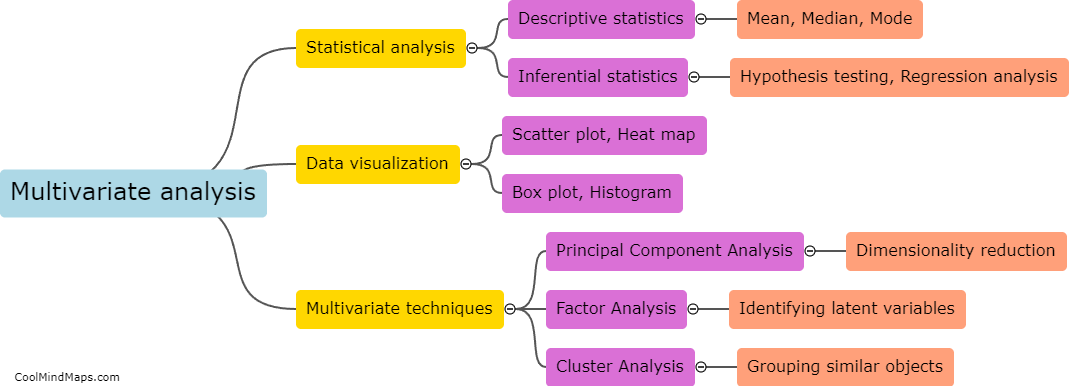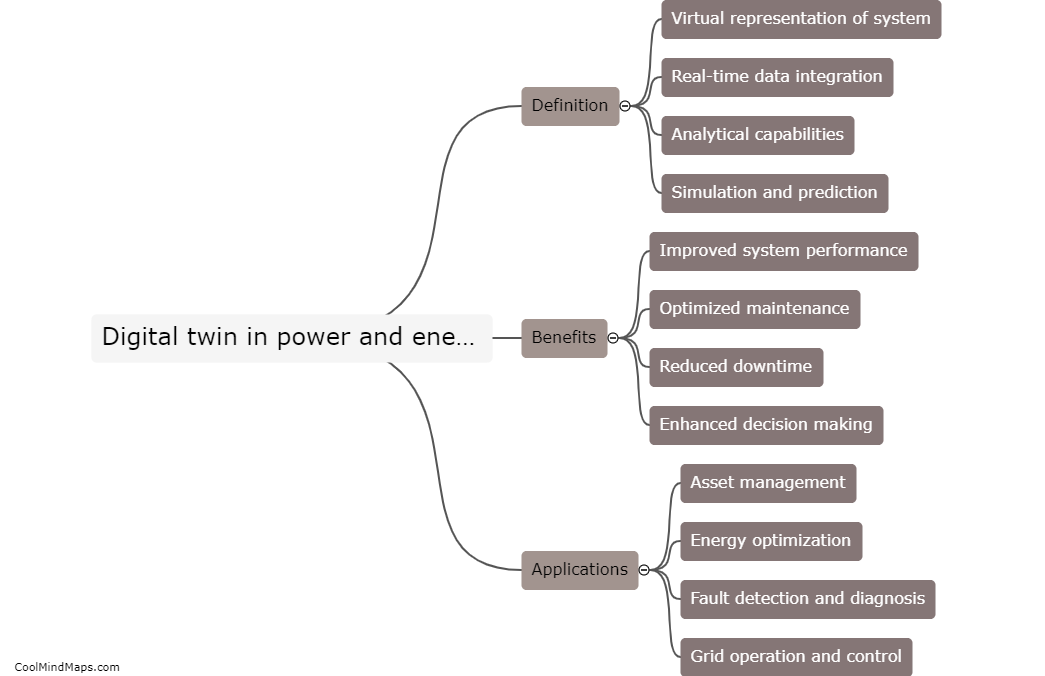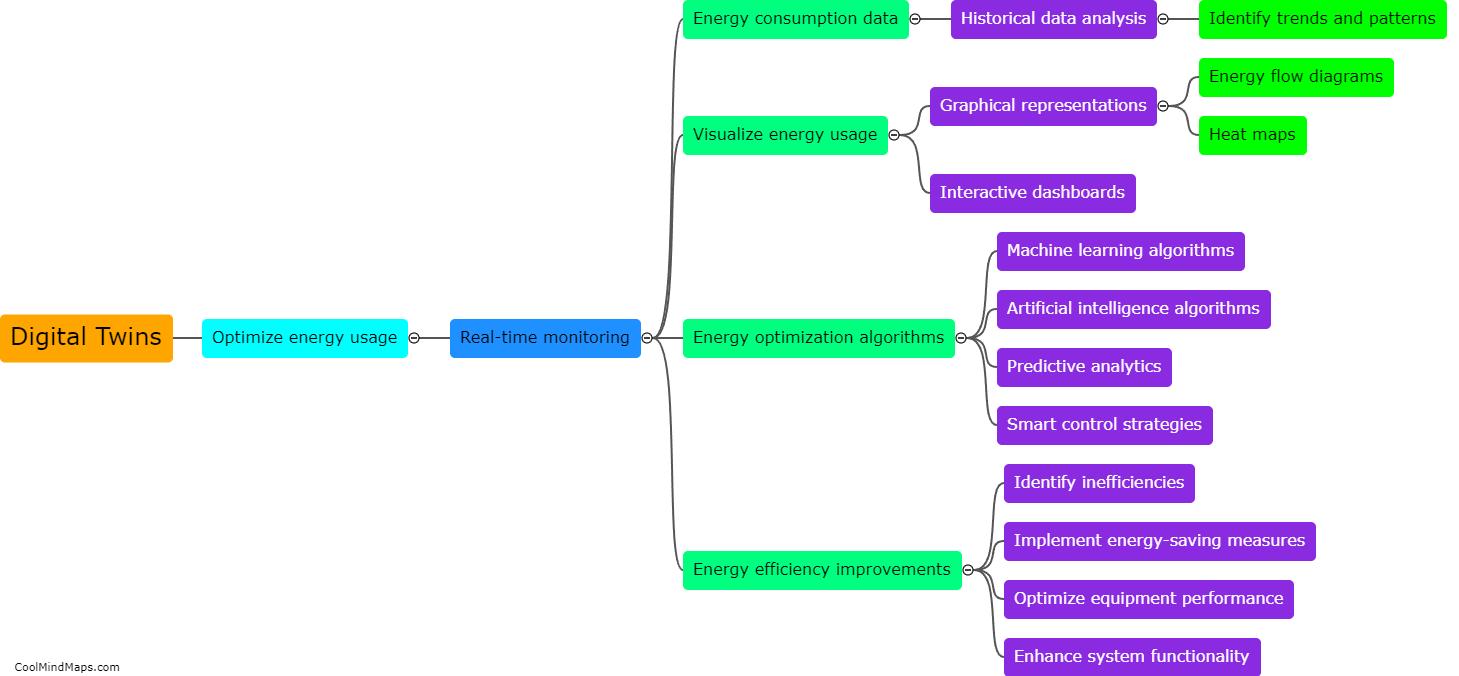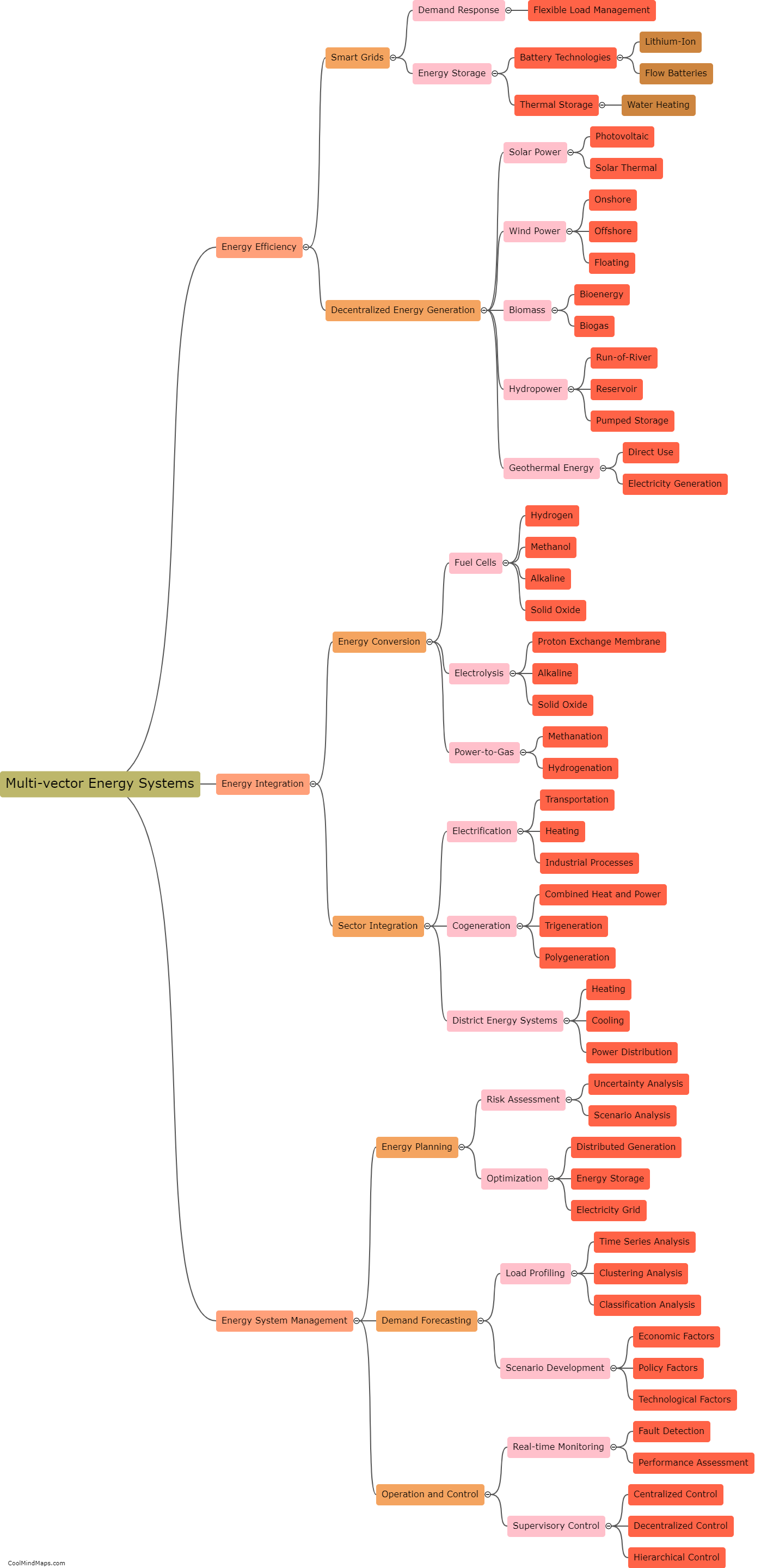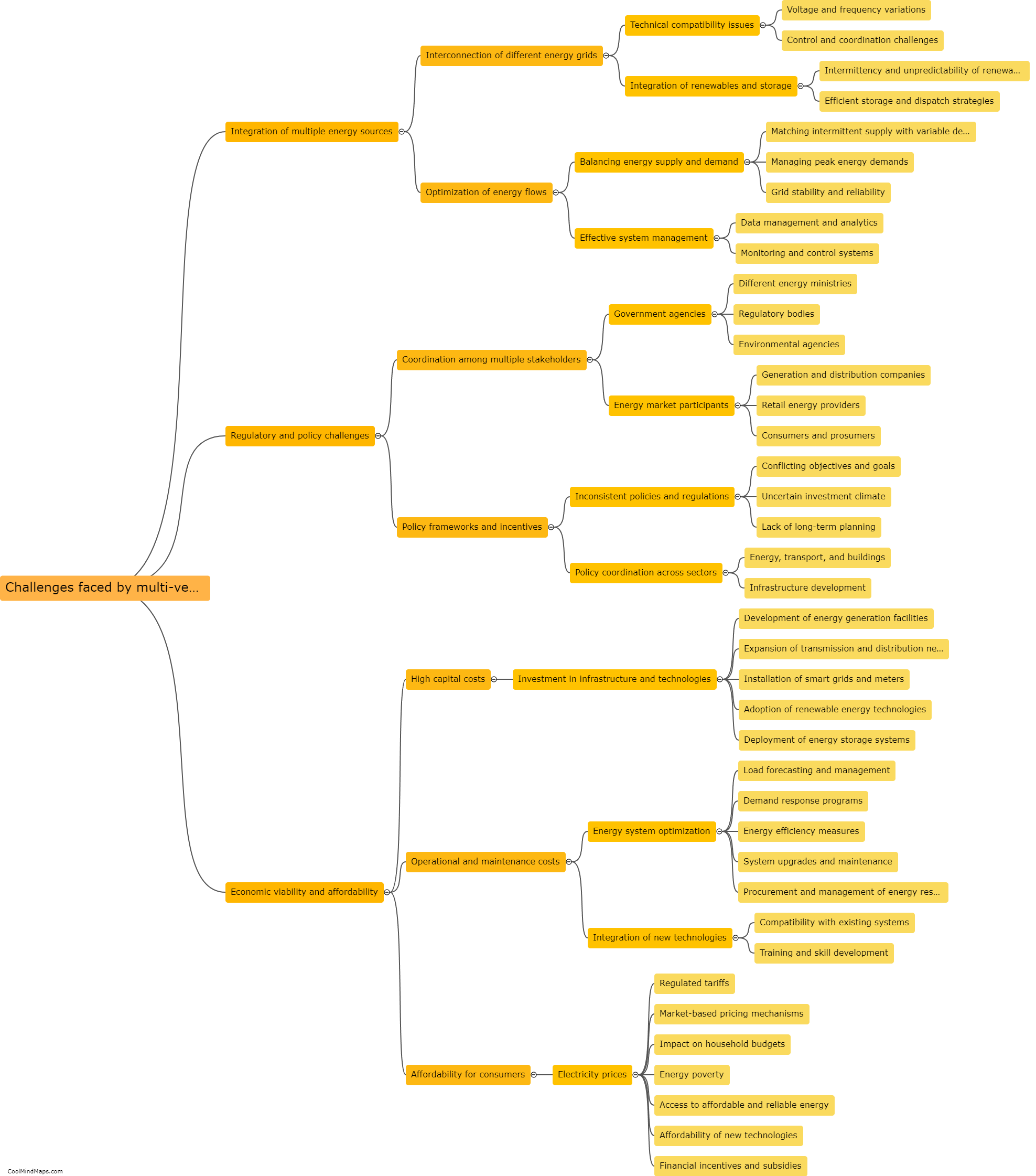What are multi-vector energy systems?
Multi-vector energy systems refer to integrated systems that use multiple energy vectors, such as electricity, thermal energy, and transportation fuels, to optimize energy efficiency and meet various energy needs. These systems combine different types of energy sources, such as renewables (solar, wind) and traditional fossil fuels (natural gas, oil), to provide a diverse and reliable energy supply. By utilizing multiple vectors, the excess energy from one vector can be efficiently converted and utilized in another vector, thereby reducing waste and improving overall system efficiency. This approach enables a more flexible, sustainable, and resilient energy system that can adapt to different energy demands and help transition towards a low-carbon future.
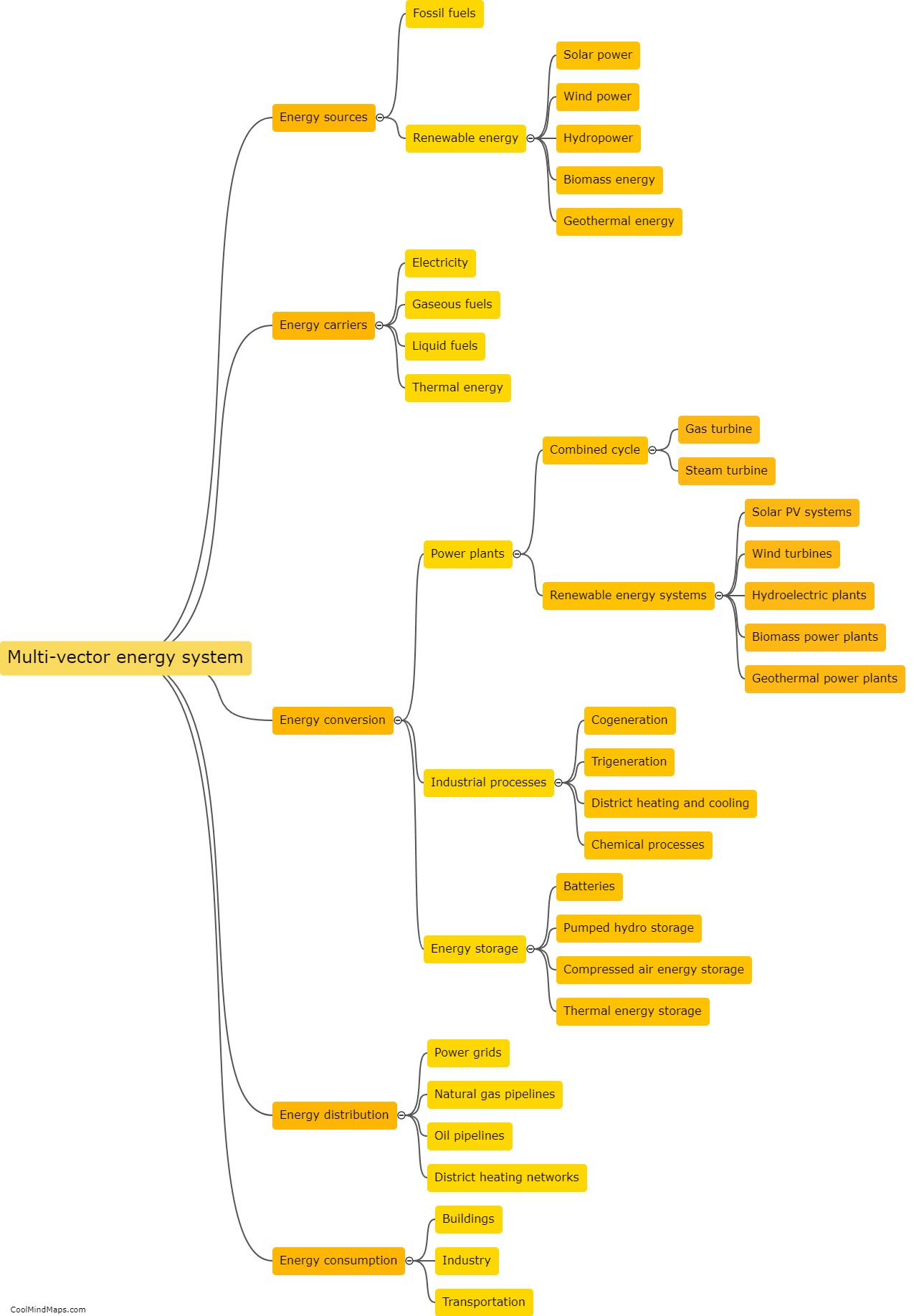
This mind map was published on 26 October 2023 and has been viewed 139 times.
